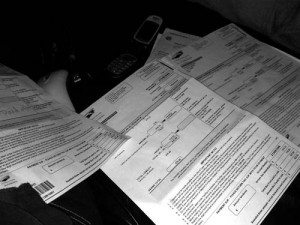Texans are being warned by the organization responsible for the reliability of the Texas electricity grid, ERCOT, that the state will fall short of power next summer. The threat to the grid can be attributed to the combined effect of ever increasing demand for electricity in Texas and the loss of several power plants on the horizon. The planet closings are largely a consequence of new EPA rules. Dallas electricity rates have been very low in recent years resulting in less incentive to build new planets.
ERCOT had a difficult year in 2011, a year that saw around 7,000mw of capacity lost from the grid. This resulted in rolling blackouts during a severe winter events in February.
ERCOT has taken steps to try to reduce the chances of a repeat of February 2011 when the grid was unable to meet demand and was forced to implement targeted blackouts. Working with the PUC they are attempting to update rules to allow for greater participation of contingent electricity sources in the event of an electricity demand emergency.
With power reserve margins dangerously low planning becomes all the more critical. When coordinating available supply to match demand that will meet or potentially exceed that supply there is very little room for error. Because of that ERCOT is putting additional pressure on grid operators to closely monitor all of their projects under development that are expected to bring additional supply online in the foreseeable future.
In many ways the Texas electricity system has found itself caught in a perfect storm of weather conditions, new environmental regulations, and economic conditions. Texas, like many other areas, experienced a string of wild weather in 2011. The weather challenges faced by the Texas electricity grid started early in the year as February saw an ice storm that effectively shut down transportation and kept Texans inside their homes where they turned on their heaters and demanded record electricity output from the grid. The record demand along with weather-related failures at certain key points in the power generation infrastructure forced ERCOT to implement controlled blackouts.
The record cold winter was follow by a record hot summer. As Texas bounce between weather extremes the electrical grid sometimes struggled to keep up with demand. Along with the extreme temperatures, 2011 is also notable for the continuation of an historic drought in Texas as wells as unrelenting wildfires.
The timing of the harsh onslaught of natural disasters is somewhat ironic when you consider that while dealing with these the Texas electricity system is also beginning to realize the impact of recent new EPA regulations. The true impact of the new rules has been debated for a while but the time is rapidly approaching when the hypothetical impact is giving way to the real world impact as electricity plants that are not able to meet the new rules are closing down at exactly the time when Texas is struggling to generate enough electricity to meet demand. The concerns raised in Texas are being echoed across the country. Grid operators are openly warning of the consequences of closing plants by the hundreds, even temporarily, to have systems updated to comply with the new rules. There is a very real concern that blackouts will result.
 The West Texas
The West Texas 
